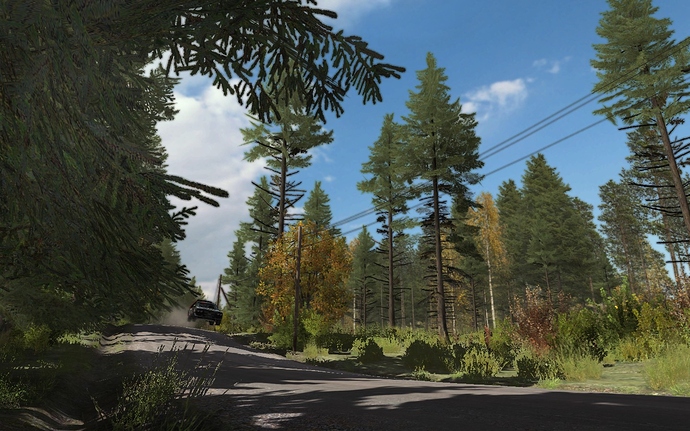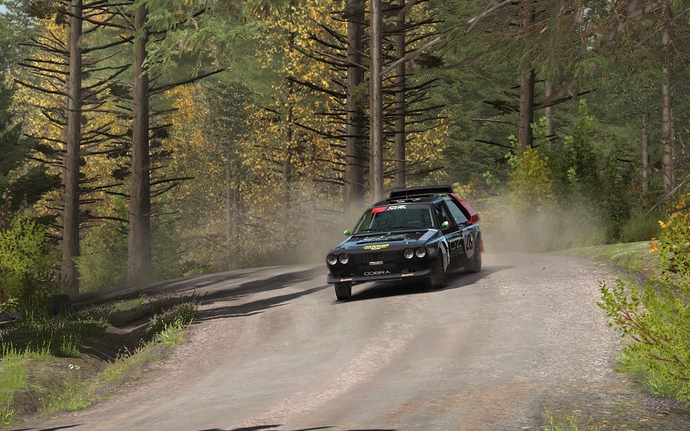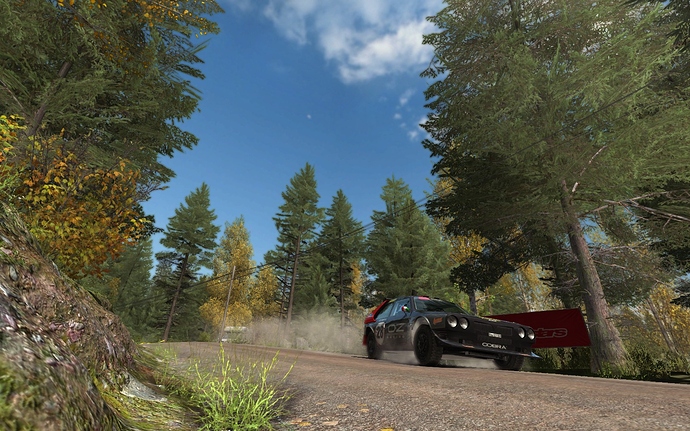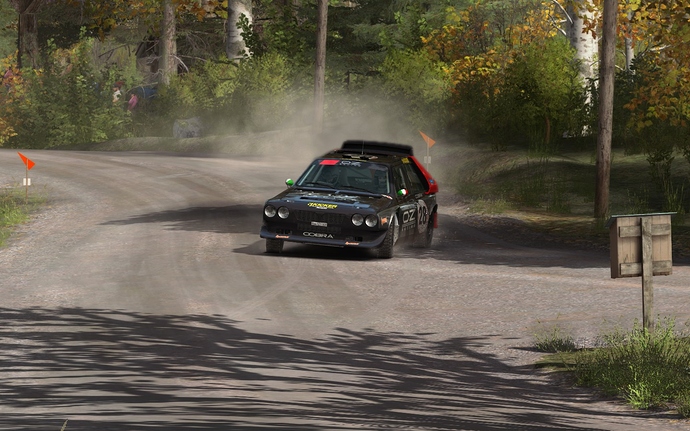I will probably go with the Lancia. A bit of testing is required
Quick question is there a way to test out a car before buying it?
Custom race?
Yeah, best bet is to set up a custom race and use Wales Pant Mawr as your test stage.
It’s Group B, so
Decrease the front diff
Increase the rear diff
Soften front springs
Stiffen the rear springs
Add rear brake bias
Thanks for the setup tips, managed to get the car from flying off the cliff every second to actually being able to steer it through the course.
DiRT Rally uses the 1-6 system co-driver call system. This means that 1 is a slow corner and 6 is fast one. We call the corner direction first i.e. “Left Five into Right Three” and have a little more detail such as “Square”, “Hairpin” and “Acute” corners for when the corner severity is 90 degrees or greater.
Linking all of the corners together are distances. “Into” and “And” are very small distances between corners, we then use even numbers up to 100 metres and odd numbers once we go over the 100 metre mark.
The best way to describe the calls that describe the corner severity is with a diagram. So here is one I prepared earlier:
The key thing to remember with these calls is that they are not Pace Notes. Pace Notes are written on recces and are very personal to the crews that create them and the car they are using. The calls we have created are Route Notes and they are designed to describe the road as best as possible. This makes them much more consistent and far less subjective, as a result they are a much better fit for the broad spectrum of rally cars that you will be able to drive on our stages.

Attitude!
Like an aeroplane, rally cars move in 3 axis; roll (side to side), pitch (front to back) and yaw (rotation). In order to traverse a rally stage quickly and without crashing, the driver must pro-actively manage the attitude of the car at all times. Rally cars are well known for performing big slides and most of the time, they are intentionally induced by the driver to achieve as high a speed as possible without sliding off the road.
Braking
There are two separate but equally important uses for the brakes in a rally car. The most obvious use is to slow down to a speed at which the car can take the next corner without crashing. The second, less obvious reason is to manage weight transfer before, during or even after cornering. Applying the brakes transfers more of the weight of the car over the front wheels, pressing the tyres against the road, giving them increased grip. Of course, the trade off is that the rear tyres have less of the cars weight applied to them, resulting in less grip.
Weight Transfer
The key component around which most other aspects of rally driving revolve is known as ‘weight transfer’. The direct effect of weight transfer is that the amount of mechanical pressure applied by each of the four tyres against the road surface varies. When a car speeds up, slows down or turns, each tyre will experience an increase or decrease in that mechanical pressure compared to when the car is stationary. This results in an increase or decrease of the potential grip available. As a driver you must actively manage the weight transfer in order to maximise the grip potential of each tyre, at the moment that grip is required whether you are braking, accelerating or turning. Braking and accelerating produces longitudinal weight transfer. Turning produces lateral weight transfer. Bear this basic principle in mind when you’re out on stage, as almost all techniques are used to manage weight transfer.
Took me ages to get my wheel set up nicely.
Now for some practice stages in Wales in a group B Lancia. I see for the first stage, Entity is beating me properly
Right, the Ford is dangerous…
Going to try with the Lancia.
Peugeot 205 is seriously fast, way faster than what I like.
What view do you guys use. 3rd person or sitting in the cabin - which is freaky as hell when you’re going fast.
I use the “bonnet” view
First event starts tomorrow 
Yessssssssssssssss
lolwtf, “Display name doesn’t conform to the naming policy” 
Season starts in: 0 days, 5 Hours, 41 Minutes
I’m must get some practicing in
To confirm please Mr Clerk of the Course…
- Once Event 1 opens, we’ll have 2 weeks to register times for the 9 stages?
- The car you start Stage 1 with is the car you’ll use for the entire event?
- And in this particular event we’ll be able to do each stage separately because you’ve kindly set up Service Areas after each stage which should allow us to save and quit and come back later to continue? Or is it only possible to break up your event at the Check Points? So after Stage 1 and then again only after Stage 5?
- But when we do start Stage 1, that’ll be the one that counts as there are no Event Restarts or Stage Retrys?
Correct
Yup
Checkpoints are at :
- Stage 1
- Stage 5
- Stage 6
- Stage 8
- Stage 9
Service Areas and Tuning will be available for every stage
Once you start the event you’re in. That (no matter how good or bad) will be the recorded run. So you effectively have one shot. It’s harsh, but fair.



